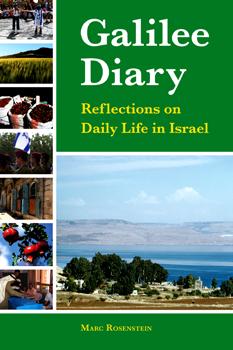3/20/13 Wednesday – Israel Connections
HTTP/1.1 200 OK Server: nginx Content-Type: text/html; charset=utf-8 Etag: “1363790911-0″ Content-Language: en Link: ; rel=”shortlink”,; rel=”canonical” X-Generator: Drupal 7 (https://drupal.org) Cache-Control: public, max-age=300 Expires: Sun, 19 Nov 1978 05:00:00 GMT Vary: Cookie,Accept-Encoding Set-Cookie: SESSa5d7e84b9a220884d7221ee268525755=deleted; expires=Tue, 20-Mar-2012 14:48:32 GMT; path=/; domain=.reformjudaism.org; httponly Last-Modified: Wed, 20 Mar 2013 14:48:31 GMT X-AH-Environment: prod Content-Length: 100004 Date: Wed, 20 Mar 2013 14:48:33 GMT X-Varnish: 1730396029 Age: 0 Via: 1.1 varnish Connection: keep-alive X-Cache: MISS Galilee Diary: Starting Over | Reform Judaism
By Rabbi Marc Rosenstein, 3/20/2013
The day after the Passover, that very day, they ate some of the produce of the land: unleavened bread and roasted grain. The manna stopped the day after they ate this food from the land; there was no longer any manna for the Israelites, but that year they ate the produce of Canaan. (Joshua 5:11-12)
The Lord said to Moses, “Speak to the Israelites and say to them: ‘When you enter the land I am going to give you and you reap its harvest, bring to the priest a sheaf of the first grain you harvest…You must not eat any bread, or roasted or new grain, until the very day you bring this offering to your God. This is to be a lasting ordinance for the generations to come, wherever you live. (Leviticus 23:9-11, 14)
Coalition or not, nuclear threat or not, the nation of Israel is currently preoccupied with Pesach cleaning. Last week our newspaper came with a glossy advertising supplement, a thick booklet consisting of a catalogue of all the cleaning compounds and materials produced by a major manufacturer. This is serious business, carried out not just with detergent and cleanser, but with lye and blowtorches and large cauldrons of boiling water. I’m not sure which holiday leads in casualties: Purim (drunkenness, cap guns, costume injuries) or Pesach (cuts, inhalation of fumes, burns, and falls from ladders). This obsession is not limited to the Orthodox, though most of the funny stories about excess relate to them; the instinct to clean out and refresh before Pesach seems to be a general Jewish trait, leading to a kind of national hysteria, even as we laugh at each other and ourselves while doing it.
It turns out that this national cleanup has a legitimate biblical origin. In ancient Israel, Pesach marked the beginning of the grain harvest. This occasion, a time of gratitude and celebration, was observed by the bringing of an offering of the first sheaves to the priest, and a ritual liturgy with additional sacrifices. Until this offering was brought, it was forbidden to eat any of the new crop. Hence, the great cleanup of Pesach, according to this description, meant using up – and getting rid of any residue – of last year’s crop, making way for the new grain and its products which could be consumed from Pesach onward. (In the food service industry this is FIFO – first in, first out). The holiday was an agricultural/seasonal New Year – a reset and restart connecting what we ate to the transition of the seasons and to God’s beneficence in allowing us to bring in a harvest of new grain.
And on a historical level, the description of the first Pesach in the land, in Joshua chapter 5, contains a similar theme: a dietary transition – in this case, from the miraculous, God-given mannah to the bread brought forth from the earth by our own labors. On Pesach the old diet ended (and since we know that mannah had a very short shelf-life, getting rid of the old was not a big deal) and a new one began.
So a great clean-out and a week of matzah remind us that wherever and however we live, we are linked to our ancient agricultural roots in the land. And speaking of roots: our family has discovered, since living in the Galilee, the “roasted grain” referred to in the Bible and made it part of our culinary repertoire: a staple in the local Arab diet is frika, wheat grains that have been toasted and cracked, yielding a kind of burgul with a slightly toasty/smoky flavor. We have to cross the highway to the supermarket in the Arab village to buy it.
Submit a blog post
Share your voice: ReformJudaism.org accepts submissions to the blog for consideration.
HTTP/1.1 200 OK Server: nginx Content-Type: text/html; charset=utf-8 Etag: “1363790911-0″ Content-Language: en Link: ; rel=”shortlink”,; rel=”canonical” X-Generator: Drupal 7 (https://drupal.org) Cache-Control: public, max-age=300 Expires: Sun, 19 Nov 1978 05:00:00 GMT Vary: Cookie,Accept-Encoding Set-Cookie: SESSa5d7e84b9a220884d7221ee268525755=deleted; expires=Tue, 20-Mar-2012 14:48:32 GMT; path=/; domain=.reformjudaism.org; httponly Last-Modified: Wed, 20 Mar 2013 14:48:31 GMT X-AH-Environment: prod Content-Length: 100004 Date: Wed, 20 Mar 2013 14:48:33 GMT X-Varnish: 1730396029 Age: 0 Via: 1.1 varnish Connection: keep-alive X-Cache: MISS Galilee Diary: Starting Over | Reform Judaism
By Rabbi Marc Rosenstein, 3/20/2013
The day after the Passover, that very day, they ate some of the produce of the land: unleavened bread and roasted grain. The manna stopped the day after they ate this food from the land; there was no longer any manna for the Israelites, but that year they ate the produce of Canaan. (Joshua 5:11-12)
The Lord said to Moses, “Speak to the Israelites and say to them: ‘When you enter the land I am going to give you and you reap its harvest, bring to the priest a sheaf of the first grain you harvest…You must not eat any bread, or roasted or new grain, until the very day you bring this offering to your God. This is to be a lasting ordinance for the generations to come, wherever you live. (Leviticus 23:9-11, 14)
Coalition or not, nuclear threat or not, the nation of Israel is currently preoccupied with Pesach cleaning. Last week our newspaper came with a glossy advertising supplement, a thick booklet consisting of a catalogue of all the cleaning compounds and materials produced by a major manufacturer. This is serious business, carried out not just with detergent and cleanser, but with lye and blowtorches and large cauldrons of boiling water. I’m not sure which holiday leads in casualties: Purim (drunkenness, cap guns, costume injuries) or Pesach (cuts, inhalation of fumes, burns, and falls from ladders). This obsession is not limited to the Orthodox, though most of the funny stories about excess relate to them; the instinct to clean out and refresh before Pesach seems to be a general Jewish trait, leading to a kind of national hysteria, even as we laugh at each other and ourselves while doing it.
It turns out that this national cleanup has a legitimate biblical origin. In ancient Israel, Pesach marked the beginning of the grain harvest. This occasion, a time of gratitude and celebration, was observed by the bringing of an offering of the first sheaves to the priest, and a ritual liturgy with additional sacrifices. Until this offering was brought, it was forbidden to eat any of the new crop. Hence, the great cleanup of Pesach, according to this description, meant using up – and getting rid of any residue – of last year’s crop, making way for the new grain and its products which could be consumed from Pesach onward. (In the food service industry this is FIFO – first in, first out). The holiday was an agricultural/seasonal New Year – a reset and restart connecting what we ate to the transition of the seasons and to God’s beneficence in allowing us to bring in a harvest of new grain.
And on a historical level, the description of the first Pesach in the land, in Joshua chapter 5, contains a similar theme: a dietary transition – in this case, from the miraculous, God-given mannah to the bread brought forth from the earth by our own labors. On Pesach the old diet ended (and since we know that mannah had a very short shelf-life, getting rid of the old was not a big deal) and a new one began.
So a great clean-out and a week of matzah remind us that wherever and however we live, we are linked to our ancient agricultural roots in the land. And speaking of roots: our family has discovered, since living in the Galilee, the “roasted grain” referred to in the Bible and made it part of our culinary repertoire: a staple in the local Arab diet is frika, wheat grains that have been toasted and cracked, yielding a kind of burgul with a slightly toasty/smoky flavor. We have to cross the highway to the supermarket in the Arab village to buy it.
Submit a blog post
Share your voice: ReformJudaism.org accepts submissions to the blog for consideration.




